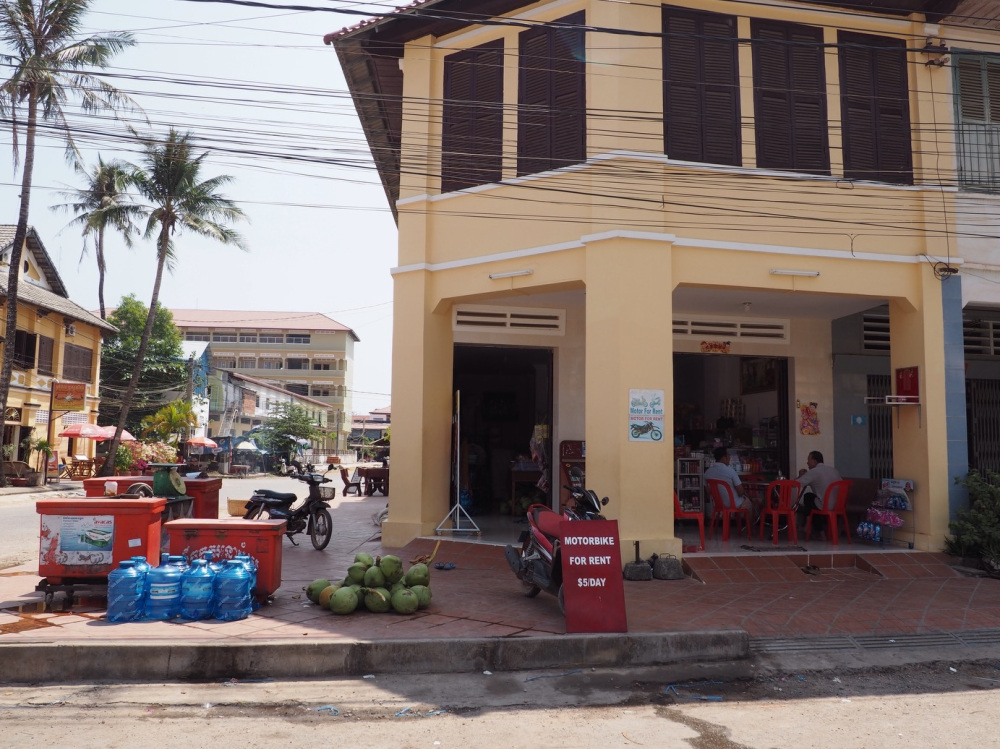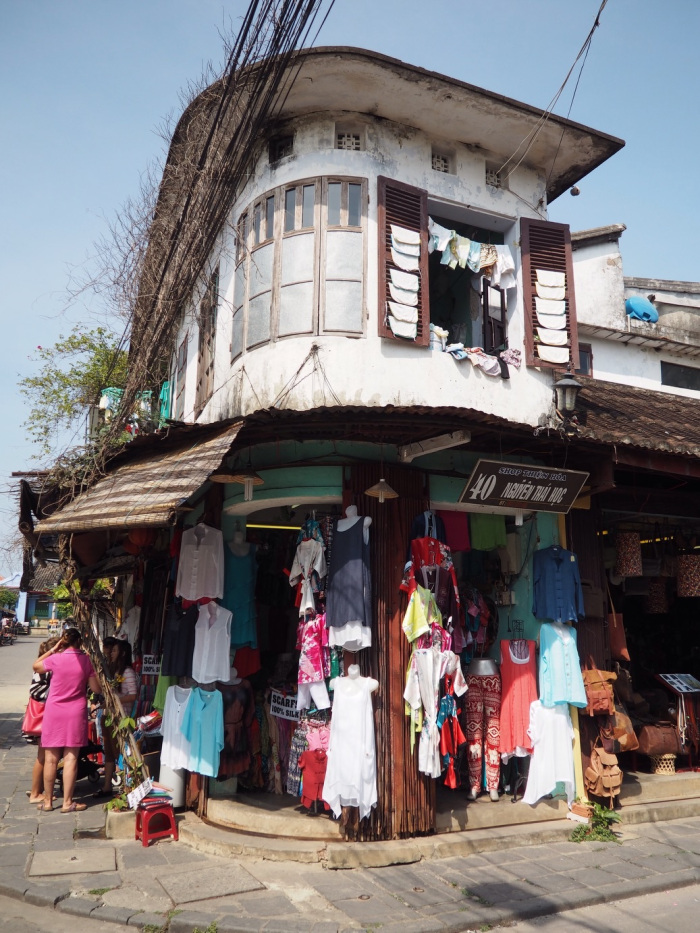Having explored most of Vietnam and a small part of Cambodia, I am struck by the innovation that you see here. You will often find creative solutions to establish a business. Have you ever seen an entire restaurant tacked on as a motorcycle sidecar? Otherwise you will often find that a persons home is also their business, or several businesses. Many buildings will have some sort of business, be it a restaurant, bar, convenience store, renting motorcycles out front, rooms to rent out in the back, and a small room they reserve for themselves to live in. People do whatever it takes to earn that extra income necessary to get by for the next day, space is not wasted. In Vietnam, during lunch time you will often see an entire family eating lunch right in the middle of their business. The lines between home and business are blurred.

This made me think of the chances of this happening back home in Canada, most of it would be next to impossible, if not illegal.
If you think about the many hurdles an individual must overcome to run a successful business. Permits, licences, inspections, parking requirements, regulations, zoning…the list goes on. All of these cost money and time. Has over-regulation gutted our ability to innovate? Have we destroyed our ability to provide income earning options for the middle and low income classes?

I am reminded of the recent resurgence of the food-truck scene in North America. For the most part the only “food truck” cart around were hot-dog carts. It was very surprising to learn that food-trucks were banned in many cities like Montreal. While it seems new and cool in a North American sense, travelling in the developing countries shows just how normal it is in the rest of the world.
From our partners:
I remember the story of my friend who opened a food-truck in Edmonton. Under current laws food trucks were prohibited or difficult. The city didn’t have bylaws describing how to handle where food-trucks could park, there was no definitive way to handle an application for parking and the permitting process was long and tedious. My friend decided to go with the food-truck in the first place because it was less capital intensive, as they didn’t have the large amount of upfront capital to afford a brick and mortar restaurant. Now after several years successfully operating a food-truck, my friends have now gathered enough capital to open a brick and mortar restaurant while also maintaining the original food-truck. A food-truck gave a talented chef a foot in the door to owning his own business. While the city and numerous others have since then changed their tune and made it easier, the process took years.

This sort of incrementalism is a life line for the middle and low income classes, it allows you to start off small and work your way up. It is up to the city and governments how much they want to enable innovation and income earning. For the most part most cities are disabling and overbearing.
I have often been saying cities and governments need a department or committee of innovation, whose sole purpose is act as an interdepartmental, multidisciplinary team that searches for ways to achieve the same outcome but cutting the red tape. This would be a department that seeks to collaborate internally and externally to break down the barriers that get in the way of innovation and income earning.
Cities are all too happy focusing on the big catches, setting policies to attract the large firms, developers and investments. This is a red herring, it is actually the sum of its parts that makes any city successful.
One particular firm or building, while it may be splashy and make headlines is not as powerful the revenue generator we all think it is. This responsibility lies with the thousands of small businesses and individuals, it is time we start focusing on them. As this article points out the revenue and job creation potential of a small building in the downtown versus a large suburban Walmart is far greater when focusing on a per land unit basis.

One of the most crippling obstacles standing in the way of small scale businesses and developments is the city zoning and parking bylaws. I really like this other article by the Strong Towns team, it really highlights just how much our zoning and bylaws are gutting our ability to enable the entry of low capital businesses into the market. This leads the way to our present situation in North America where only high capital developers can afford to develop anything, and high capital businesses or chains can afford to fill the spaces built. This will ultimately only result in more of the same and only a few having a say.
To survive in today’s global world, with a declining middle class and incomes, we need to introduce flexibility. We need to open the doors for low capital businesses to kindle innovation, and remain competitive. We need to ease rules about where businesses can open.
Form based zoning, is a great example, it is concerned more about the appearance of the building and is less concerned about the occupying business. This type of zoning leaves the building use up to the market, which will support greater mixed-use, flexibility and income earning.
While many of our regulations have the right goals and intentions, the path they take to achieve the results can really be quite destructive. We can achieve the same level of health, safety and aesthetic standards with the use of more flexible regulations. As a result cities will become more vibrant and economically resilient bringing a more diverse array of amenities and services closer within walking distance of where people work, live and play.
This feature is written by Darren Proulx & originally appeared in his website Urban Reality.
















